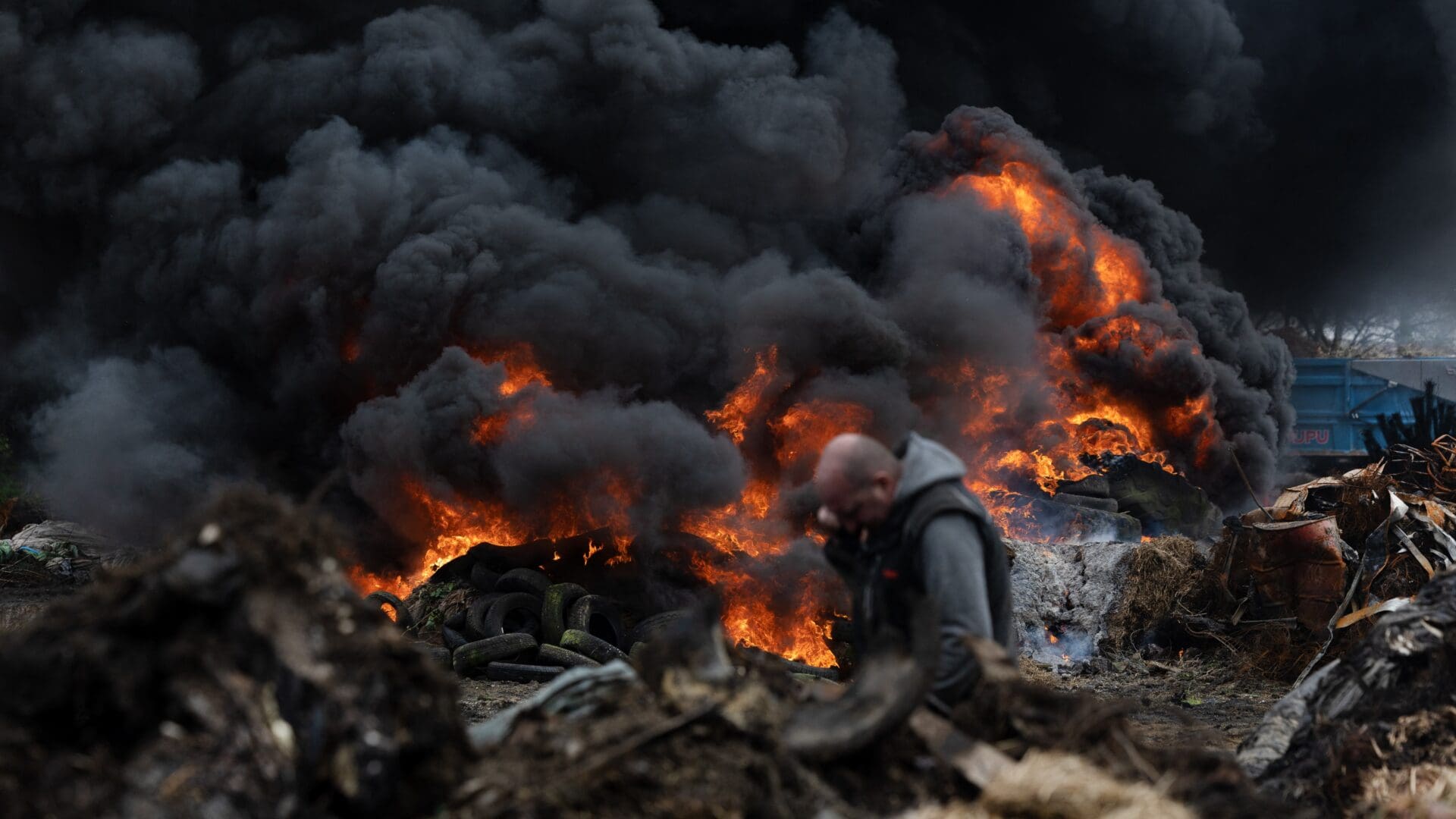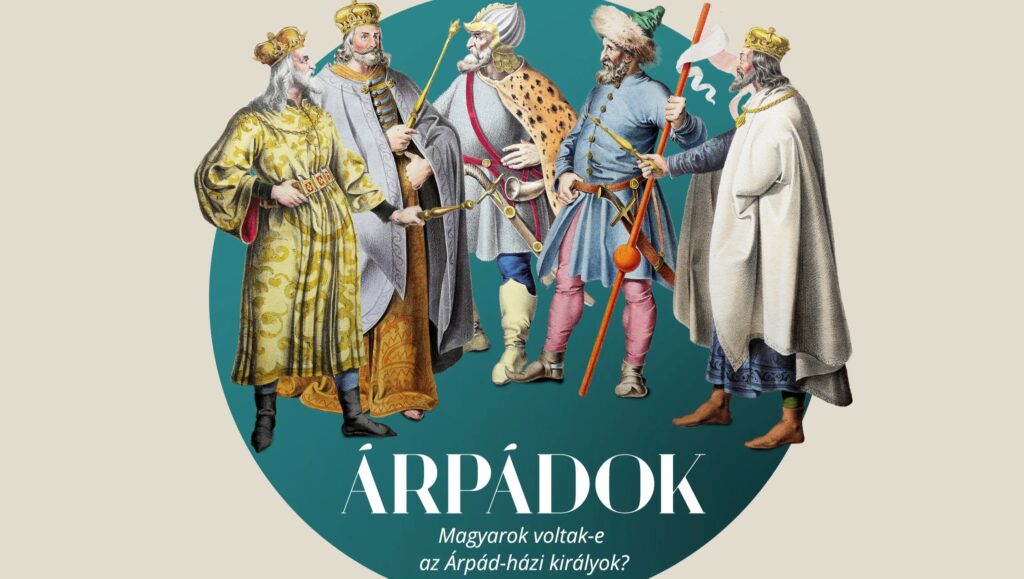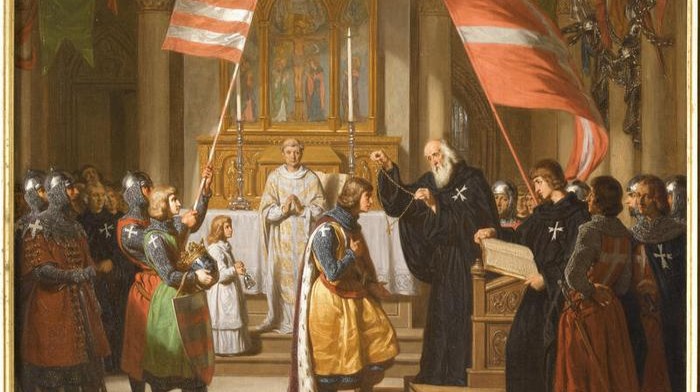This article was first published in Hungarian in Magyar Nemzet.
These days Martin Luther is primarily remembered for initiating the Protestant Reformation in the early sixteenth century by publishing his Ninety-five Theses, which challenged the practices and doctrines of the Roman Catholic Church. He is far less remembered for writing the much more provocatively titled Against the Murderous, Thieving Hordes of Peasants. The tract was a response to the then-ongoing German Peasants’ War, a widespread popular revolt in the Holy Roman Empire where peasants and lower classes sought economic and social reforms, largely inspired by the Reformation.
As a historian and observer of social movements, it’s impossible not to see the
striking parallels between the Peasants’ War and the ongoing farmer protests across Europe.
Both movements, separated by five centuries, represent a tumultuous confluence of grievances across political, economic, and even theological lines. But perhaps more intriguing is the role played by the technological and social forces of their times: the printing press and Protestantism in the 1500s and today’s digital media and Green Agenda, all of which present challenges to the existing political and social orders.
In Luther’s time, the German Peasants’ War was not merely a series of isolated uprisings but a widespread movement fueled by a sense of injustice and the desire for a more equitable social order. The movement’s unofficial manifesto—The Twelve Articles of the Black Forest, or simply The Twelve Articles—articulated the grievances and demands of the peasant classes, advocating for economic, social, and religious reforms. Key demands included the abolition of serfdom, the right to choose a pastor, and the reduction of excessive burdens and taxes. The document emphasized the peasants’ desire for fair treatment according to the Bible, marking a significant early plea for human rights and equality.
In practice, these demands amounted to a fundamental call for the end of the existing political order. The German Peasants’ War sought to overthrow the feudal system that bound peasants to the land and their lords, driven by new social forces of Protestantism which promised a more direct relationship with the divine, bypassing the established Church. The German aristocracy, answerable up to the Holy Roman Emperor, derived its authority from divine right—the ideology that monarchs, crowned by the Church, received their authority directly from God and ruled in His holy name. Therefore, any assault on a monarch’s authority was also an assault on both the Catholic Church and God’s will.
This is why Luther’s authorship of Against the Murderous, Thieving Hordes of Peasants is so noteworthy; the Peasants’ War, which he was vociferously against, was itself a consequence of the religious and ideological revolution that he unleashed. Moreover, the printing press, which challenged the established political order by enabling ideas to spread beyond the control of the traditional gatekeepers, was instrumental in the rapid dissemination of Luther’s Protestant ideas. For that same technology to then be utilized to spread the revolutionary messages of the German Peasants’ War came as a shock to both him and other aristocrat-aligned early Protestant leaders; this was not what they had in mind regarding reforming society.
A distinctly similar reaction is strikingly present in many of today’s European leaders when confronted by the recent surge of farmer protests across the continent. These protests, empowered by social media technologies and across the breadth of the continent, are not isolated incidents of discontent. Rather,
they are symptomatic of a broader wave of resistance against the prevailing policies pursued by incumbent politicians.
Just as the Peasants’ War highlighted the 1500s German lower classes’ exasperation with the feudal system, so too are the contemporary farm protests indicators of Europeans’ frustrations: in any democratic regime, voters—including farmers—have a right to be heard, and their viewpoints are an integral part of the political process.
It is this frustration, if not outright anger, that lies at the heart of these protests. Specifically, farmers are opposed to the European Union’s Green Deal goals, which aim for a 55 per cent reduction in greenhouse gas emissions by 2030, comparable to 1990 levels. While these ambitions are laudable for their environmental foresight, they are directly at odds with the EU’s Common Agricultural Policy (CAP), which has long shielded Europe’s farmers through subsidies and regulations. It is simply not possible to ask farmers to somehow maintain stable production while reducing fertilizer use by 20 per cent and halving the usage of pesticides and antimicrobials. In effect, environmental policies intended to save the planet place an untenable burden on the agricultural sector, a cornerstone of Europe’s economy and way of life.
Adding to this are the effects of the war in Ukraine. Production costs—particularly energy, fertilizer, and transportation—have risen owing to sanctions on Russia. The lifting of trade restrictions on Ukraine led to its cheap wheat flooding European markets, placing Polish, Slovak, and Hungarian farmers—amongst others—under significant pressure. Changes to national budgets, especially in light of the need to fund military re-armament, implicitly affect farmers, whether it be through cutting fuel subsidies, taxing nitrogen usage, or slashing tax breaks.
The farmers’ grievances are thus not merely about the specifics of agricultural policy but reflect a deeper crisis: broader dissatisfaction with the political management by mostly centre-left politicians, who are perceived to prioritize environmental goals and support for a war increasingly viewed as unwinnable over economic viability and social stability. This disaffection is exacerbated by the rising cost of living, making the proposed environmental policies seem disconnected from the immediate realities and challenges faced by ordinary citizens, particularly those in rural areas.
Moreover, the farmer protests symbolize a growing rift between urban and rural Europe. The agricultural sector, emblematic of Europe’s rural heartland, feels increasingly alienated from the urban-centric policies and narratives that dominate contemporary political discourse. This divide is not just economic but deeply cultural, pitting traditional ways of life against a future envisioned by urban elites.
All of this, as noted before, has been accelerated by the proliferation of digital media and social networks. Just as how the printing press allowed the Protestant Reformation to take off, so too does digital media amplify farmers’ voices, enabling them to organize their protests and inspire their peers in other countries to observe and replicate used strategies. Similarly, social networks and digital media also highlight and exacerbate the growing rural-urban political and cultural divide. Through these technologies, discrepancies in wealth, cultural and political values, and lifestyles between urban and rural populations are more visible and pronounced. Rural voters are likewise made more immediately aware of policy goals and decisions of elected officials and can react more quickly to these.
The success and rapid spread of the farmer protests should serve as a wake-up call to European leaders
over the profound sense of disenfranchisement among significant elements of the public. Yet like Martin Luther before them, many of them seem caught off guard by the unintended consequences of their own ideologies and decisions, particularly in the promotion of digital media, the war in Ukraine, and the Green Agenda. The same democratic leaders that spent the past decade championing digital media as a means to democratize information and foster transparency now seem uncomfortable that these same digital platforms have enabled farmers to organize, protest, and campaign against policies that affect their livelihoods. Similarly, those who enthusiastically advocated for sanctions on Russia in support of Ukraine are now struggling to accept the consequences of such, particularly the impact of increased energy prices on farming and industry. Finally, the push for environmental sustainability through the Green agenda, while noble in its goals, has ignited a wave of discontent among those it impacts most directly. This oversight mirrors Luther’s shock at the Peasants’ War—a movement fueled by the very forces of reform and communication he helped to unleash. And like Martin Luther, rather than fully accepting the role they played in setting these events into motion and proposing some moderating reforms, European leaders have taken to writing their own versions of Against the Murderous, Thieving Hordes of Peasants. Namely, these downplay the consequences of the Green Deal and instead focus on fear that Europe’s far-right parties aim to take advantage of the farmer protests to secure political power.
The protests today, like the Peasants’ War, are not merely about specific policy grievances but represent a broader disillusionment with political and economic systems that seem increasingly out of touch with the needs and values of significant portions of the population. Both movements illustrate how new social forces can galvanize widespread action, pushing societies to a tipping point where change becomes inevitable. The irony lies in the fact that the tools and ideologies intended to advance society are the same ones sparking resistance and calls for a reevaluation of the current political and social order.
How will this all end? It is hard to say.
In the 1520s, the peasants were suppressed at an enormous cost, both in terms of the rights and freedoms of peasants and economic devastation for two generations. Some, including communist philosopher Friedrich Engels, observed that the Peasants’ War preconfigured the various revolutions of 1848, which led to significant reforms and more broadly radically transformed Europe, its political systems, and the world at large.
Today, it can be argued that are at a similar precipice, with modern Europe and the Western world at large standing at the threshold of transformative change. Rather than seeing these protests as ‘part of the problem’, leaders ought to rethink the current approach and find a better way to balance between progress and tradition, between the needs of the many and the policies of the few. If not, then the current wave of protests—a mere indicator of broader frustration with modern procedural democracy, especially in democratic regimes where voters (including farmers) feel discounted and ignored—is liable to evolve into pre-revolutionary sentiment, mirroring the unrest preceding the revolutions of the past.








